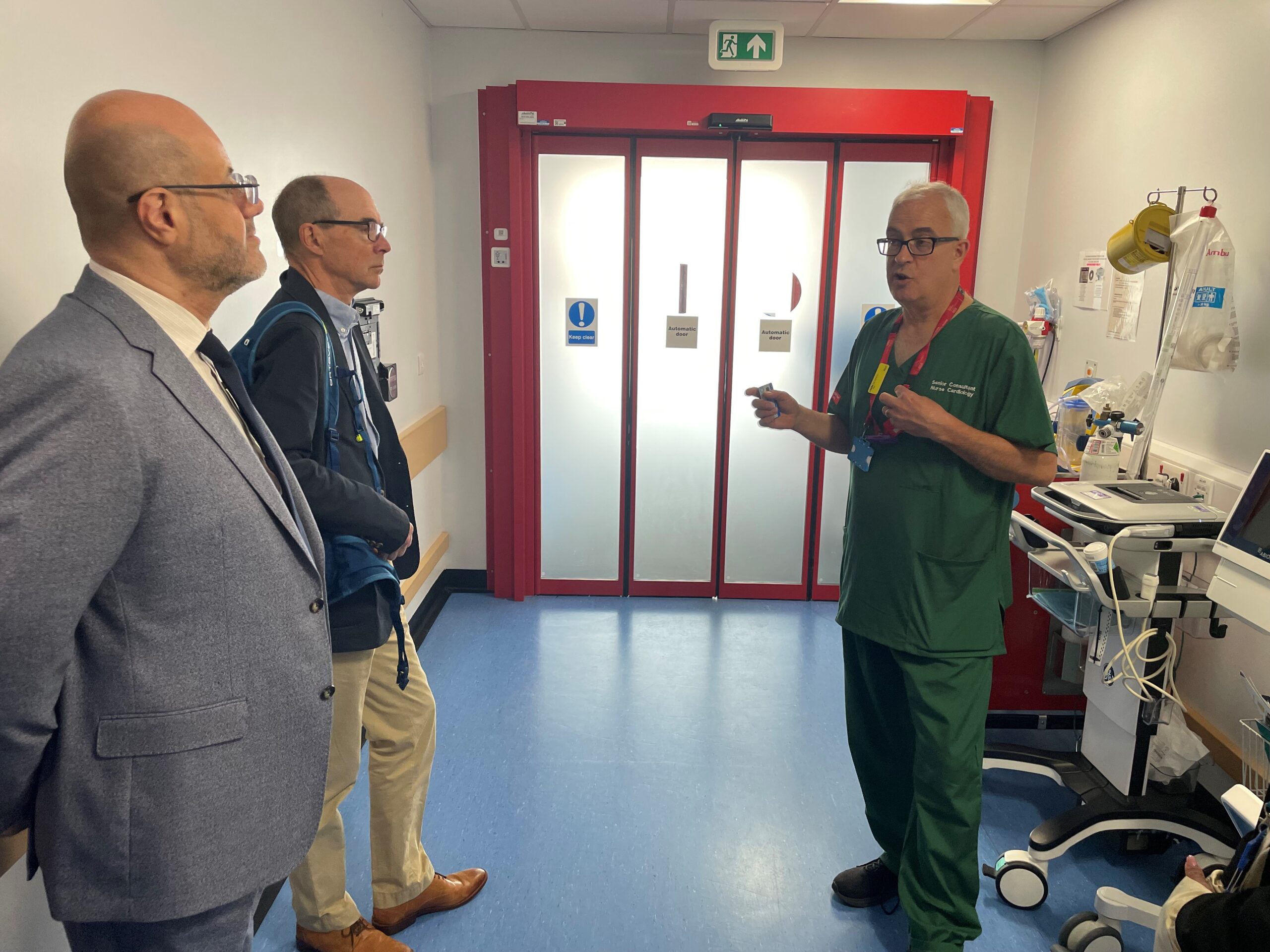Lincolnshire leads the way in cardiac care
Lincolnshire is earning national praise for its acute and community cardiology services following a high-profile visit to Lincoln County Hospital on Monday 9th June 2025. Professor Simon Ray, National Director for Heart Disease, and Dr Rani Khatib, National Specialty Advisor for Cardiovascular Disease Prevention, met local cardiology teams to see first-hand how they’re transforming care.
Since October 2021, Lincolnshire has moved quickly to improve outcomes. That autumn, NHS partners came together to assess local heart failure care and agreed on a new system-wide approach.
“We’ve focused on building systems that support fast diagnosis and proper management for heart failure,” said Professor Alun Roebuck, Senior Consultant Nurse in Cardiology at United Lincolnshire Teaching Hospitals NHS Trust.
Care closer to home
Lincolnshire’s approach aims to improve both care quality and patient experience. The county has introduced specialist clinics for early diagnosis. Teams now provide more support at home and help patients leave hospital sooner.
“We’re working hard to improve care,” said Professor Roebuck. “That includes clinics closer to where people live and helping them leave hospital earlier. All of this means a better experience for patients—and for the NHS.”
He added, “Innovation is the name of the game. We’ve built a system that links our acute trust, community trust, and ICB. It puts Lincolnshire—and our patients—at the forefront of heart failure treatment. We focus on community care wherever possible. It saves patients from long travel and improves outcomes.”
National recognition for joined-up working
The visit from Professor Ray and Dr Khatib confirmed Lincolnshire’s growing reputation as a leader in cardiac care.
“I was very impressed with the innovative approaches being taken to service development and delivery by the cardiology teams at Lincolnshire Community and Hospitals NHS Group,” said Professor Ray.
“They’ve built a strong multidisciplinary team that works across both community and hospital settings. This is especially impressive in a region with high deprivation and a widely spread population. Their integrated approach to cardio-metabolic risk is an outstanding example of cross-specialty working.”
He also praised the rapid access angina clinic and the heart failure service. “I was particularly impressed with the community delivery of IV Furosemide. It’s a smart way to reduce hospital visits,” he said.
Home IV treatment reduces hospital pressure
The new home-based IV Furosemide pilot started in February 2025. It allows up to 100 heart failure patients to receive treatment at home instead of hospital.
Furosemide treats symptoms like swollen legs and fluid in the lungs. It’s usually given in hospital, which means travel and time away from home. Now, community teams deliver it directly to patients.
“This pilot is already making a big difference,” said Professor Roebuck. “Patients get treatment at home, which is easier for them. And it frees up hospital beds. We’re seeing fewer admissions and faster discharges.”
He added, “Our earlier work laid the foundation. We’ve transformed heart failure care locally. Now we’re running this pilot and several other projects. Lincolnshire is becoming a national leader in heart failure services.”
